Belantara Foundation
DONATE TO BELANTARA Verified for authenticity Learn More IMPACT PROMISE Our Partners are carefully selected due to their high conservation impact Partner Snapshot Partner: Belantara Foundation Location: Sumatra and Kalimantan, Indonesia Category: Community Support and Development Capacity Building and Training Ecosystem Restoration Education Endangered Species Scientific Research Wildlife Conservation Urgent Appeals: Achieving Coexistence Between Communities and Wild Elephants Date Founded: 2014 Website: belantara.or.id Partner Qualifications: Verified PartnerOne of Conservation Allies’ staff or trusted advisors has visited this organization and verified its work and impact. Legally ConstitutedThis organization is formally constituted and is a legally recognized non-profit in its country of origin. About Belantra Foundation Belantara Foundation is an independent nonprofit organization based in Indonesia that plays a pivotal role in environmental conservation, forest and peatland restoration, wildlife protection, and sustainable community development, particularly across the biodiverse regions of Sumatra and Kalimantan. Their mission is to support sustainable landscape management that strikes a balance between long-term economic development, environmental protection, and improved local livelihoods. Belantara collaborates with government bodies, NGOs, private companies, academia, and local communities to implement impactful, science-driven programs. In 2024, the foundation became a Member of the International Union for Conservation of Nature (IUCN). Their Challenges Indonesia is home to some of the world’s most ecologically valuable forests—but these ecosystems are under immense threat. Rapid deforestation driven by agricultural expansion (especially oil palm), mining, and infrastructure development has caused large-scale habitat loss and fragmentation. Flagship species like the Sumatran tiger, orangutan, and elephant are at risk, alongside countless other native species. Illegal logging and wildlife trade exacerbate the crisis, while peatland fires contribute to biodiversity loss and carbon emissions. Human-wildlife conflict is also on the rise, as forest loss pushes animals into human settlements. Many of these issues are compounded by limited funding, weak enforcement of environmental laws, exclusion of local communities from decision-making, and the influence of political and economic interests. Climate change adds another layer of complexity, threatening to disrupt already fragile ecosystems. Their Approach Belantara Foundation addresses these challenges through innovative, multi-stakeholder initiatives that integrate conservation and community empowerment. Key programs include: Forest Restoration Project: SDGs Together!This project restores degraded forests by planting endangered and multipurpose native tree species. Since its launch in 2020, it has reforested 94 hectares within the UNESCO Biosphere Reserve of Giam Siak Kecil–Bukit Batu through collaboration with governments, NGOs, local communities, academics, and private stakeholders. Living in HarmonyFocused on five villages in Padang Sugihan, South Sumatra, this initiative aims to reduce human-elephant conflict through the planting of elephant feed crops, establishing salt licks, guiding elephants through ecological corridors, and preventing incursions into residential areas—improving outcomes for both people and wildlife. Sumatra Peatland RestorationIn partnership with Forest Farmers Groups in Jambi Province, this project restores 93 hectares of degraded peatland using tree seedlings that offer both ecological restoration and future economic benefits to the community. Sustainable Village Forest ManagementThis program supports local communities in Riau Province to sustainably manage production forests under social forestry schemes, improving livelihoods while protecting the integrity of natural forest ecosystems. Belantara Learning SeriesA national knowledge-sharing platform offering capacity-building opportunities for university students, conservationists, researchers, government officials, journalists, and the public. In 2024 alone, over 3,000 participants across 38 provinces engaged in sessions on topics such as social forestry, biodiversity, and ecotourism. Muda Mudi Konservasi (Youth for Conservation)This youth engagement initiative connects young Indonesians with biodiversity issues through creative competitions, educational campaigns, talk shows, and events featuring conservation experts and public figures. Why They Need Your Help Belantara Foundation’s core operations are currently funded through annual private sector donations in Indonesia. However, donations received through Conservation Allies go directly to supporting the foundation’s fieldwork and community-based conservation initiatives. Your support helps: Purchase native plant seedlings for forest and peatland restoration Procure equipment for mitigating human-wildlife conflict Fund capacity-building activities for local communities Support community-led programs that promote sustainable, nature-based livelihoods These contributions directly benefit ecosystems, wildlife, and the communities who call these landscapes home.
Te Ipukarea Society
DONATE TO TIS Verified for authenticity Learn More IMPACT PROMISE Our Partners are carefully selected due to their high conservation impact Partner Snapshot Partner: Te Ipukarea Society Location: Rarotonga, Cook Islands Category: Education Ecosystem Restoration Endangered Species Scientific Research Wildlife Conservation Urgent Appeals: Save Suwarrow’s Sparrows Date Founded: 1996 Website: tiscookislands.org Partner Qualifications: IUCN Member A distinguished Member of the International Union for the Conservation of Nature. IUCN Members are each vetted and voted on based on an independent, rigorous assessment and external references. Learn More Verified PartnerOne of Conservation Allies’ staff or trusted advisors has visited this organization and verified its work and impact. Legally ConstitutedThis organization is formally constituted and is a legally recognized non-profit in its country of origin. Effective ImpactWe recognize this Partner for their tremendous efforts to make a difference for wildlife and local communities, as well as welcome technical support from Conservation Allies to improve and scale up their impact. About Te Ipukarea Society Te Ipukarea Society (TIS) is an environmental nonprofit based in the Cook Islands, registered as an Incorporated Society since June 12, 1996. The organization was founded to care for te ipukarea—“our heritage”—and is dedicated to fostering a sustainable, healthy, biodiverse, and beautiful environment in the Cook Islands. TIS is a membership-based organization composed of individuals who believe in the importance of protecting the natural world. They are also members of the International Union for Conservation of Nature (IUCN) and BirdLife International. Their Challenges The Cook Islands face numerous threats to both terrestrial and marine ecosystems. On land, the introduction and spread of invasive species—such as non-native weeds and predators like rats—are degrading ecosystems and endangering native and endemic species, particularly birds. Marine ecosystems are under pressure from overfishing, particularly through commercial techniques like purse seine fishing. Climate change and ocean pollution also pose significant threats. Additionally, emerging risks such as deep sea mining threaten to disrupt the marine food web, harm migratory species through noise pollution, and spread toxic sediment through seafloor disturbances. Efforts to reverse these trends since the 1980s have been largely unsuccessful. The country’s first protected area was created on the island of Moheli in 2001, and subsequent efforts led to the creation of terrestrial and marine protected areas on each island in 2020. However, laws relating to these protected areas and environmentally destructive practices lack support and application at the local level. Despite their reliance on natural resources, farmers and fishers – particularly women – are often excluded from access to resources, services, and decision-making, preventing them from playing an active role in conserving their ecosystems. A lack of social cohesion and respected leadership at this level also stymies collective community-based conservation action. Their Approach Te Ipukarea Society advances its mission to build an environmentally resilient, sustainably developed, and biodiverse Cook Islands through action, advocacy, and education—often integrating traditional knowledge and practices. Their advocacy includes producing informative video documentaries, publishing articles in local newspapers, and leading public education efforts on critical environmental issues. TIS works closely with schools and youth to deliver nature-based educational programs and inspire future conservation leaders. They also mobilize communities to advocate for environmental protection through organized protests, petitions, and community engagement. Why They Need Your Help Donations directly support Te Ipukarea Society’s wide-ranging conservation initiatives, including: Invasive species eradication to protect native seabird populations Habitat restoration and waste management awareness programs Public education and advocacy around the environmental risks of deep sea mining STEM-focused biodiversity monitoring programs for local youth Your support helps ensure that balanced, science-based information reaches the community and empowers local people—especially young leaders—to become stewards of the natural world.
Ukranian Nature Conservation Group
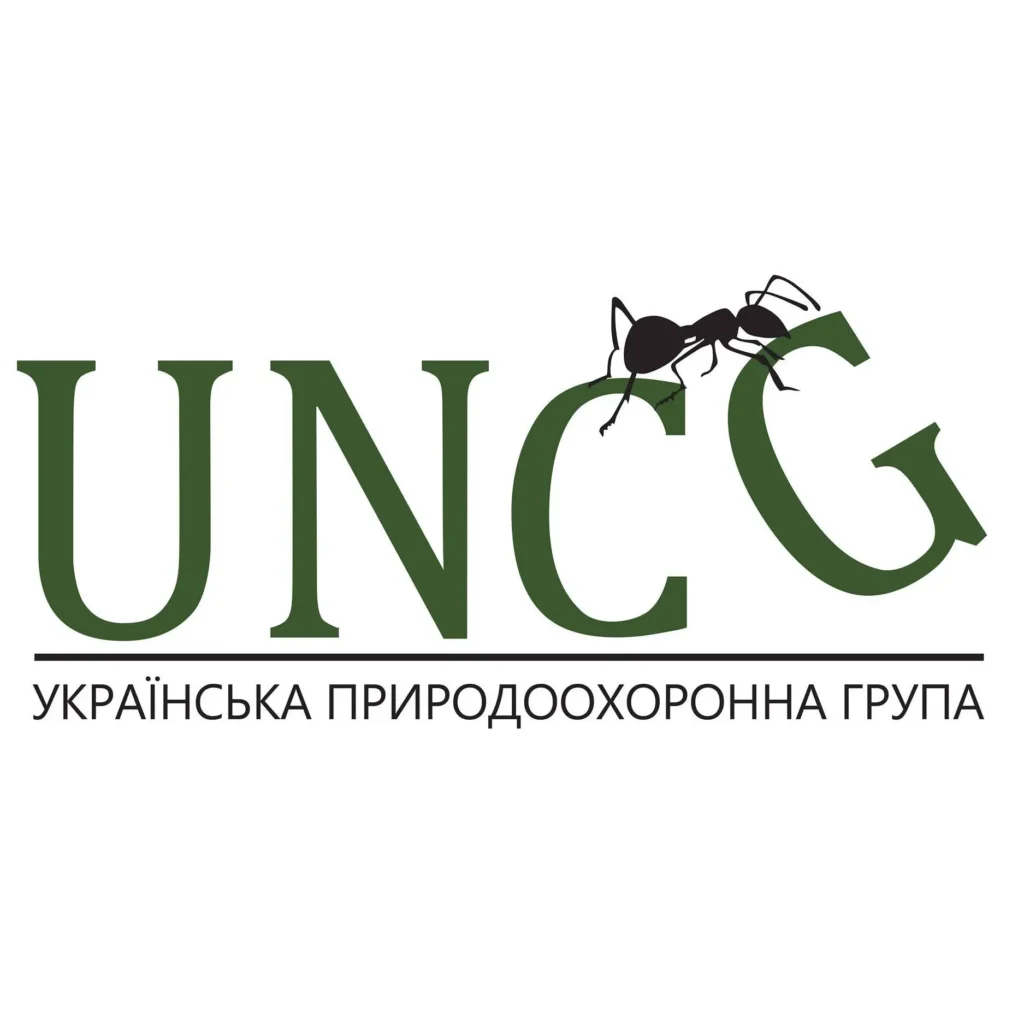
DONATE TO UNCG Verified for authenticity Learn More IMPACT PROMISE Our Partners are carefully selected due to their high conservation impact Appeal Snapshot Partner: Ukrainian Nature Conservation Group (UNCG) Location: Kyiv, Ukraine Category: Capacity Building & Training Protected Area Management Scientific Research Wildlife Conservation Urgent Appeals: None currently Date Founded: 2018 Website: uncg.org.ua Partner Qualifications: IUCN MemberA distinguished Member of the International Union for the Conservation of Nature. IUCN Members are each vetted and voted on based on an independent, rigorous assessment and external references. Learn More Legally ConstitutedThis organization is formally constituted and is a legally recognized non-profit in its country of origin. Effective ImpactWe recognize this Partner for their tremendous efforts to make a difference for wildlife and local communities, as well as welcome technical support from Conservation Allies to improve and scale up their impact. About Ukrainian Nature Conservation Group The Ukrainian Nature Conservation Group (UNCG), formally established in 2018, is a nonprofit organization founded by biologists and environmental experts. It now includes over 50 conservation professionals and activists working across Ukraine. UNCG’s work focuses on establishing new protected areas, conserving forests, monitoring wildlife populations, and protecting rare plant and animal species. Through field studies and assessments, they provide critical data to guide environmental efforts. Their initiatives maintain ecosystems in forests, wetlands, and grasslands, ensuring the survival of diverse flora and fauna while protecting water quality, soil health, and regional climate stability. They have been instrumental in creating 75% of Ukraine’s recent protected areas and have contributed over 500,000 biodiversity records to the Global Biodiversity Information Facility. UNCG also collaborates with local communities, government agencies, and international organizations to advocate for environmental policy improvements and promote sustainable land use. Their educational outreach inspires public engagement through publications, workshops, and community programs, fostering a culture of conservation for future generations. Their Challenges Ukraine’s ecosystems face significant threats due to ongoing Russian aggression, which has damaged protected areas and disrupted fragile habitats. Vital landscapes, including forests, wetlands, and grasslands, have suffered extensive harm, endangering biodiversity and ecosystem stability. With state resources focused on defense, conservation funding has become scarce, creating an urgent need for external support to sustain fieldwork, document ecological impacts, and plan for ecosystem recovery. UNCG and other conservationists are working to assess the damage and implement strategies for restoring Ukraine’s natural heritage. Recovery efforts include establishing new protected zones, rehabilitating war-impacted habitats, and developing sustainable management practices. UNCG’s commitment to data collection, ecosystem monitoring, and collaboration with local and international partners is critical for ensuring Ukraine’s biodiversity is preserved and its ecosystems are resilient in the long term. Their Approach UNCG leads initiatives to conserve and restore Ukraine’s ecosystems amid ongoing threats. They prioritize preserving ecological data, conducting studies, and creating methods to restore war-damaged habitats. A key focus is advocating for the legal protection of affected areas to safeguard them from regulatory gaps and limited government oversight. UNCG identifies valuable sites across Ukraine to secure their protection status. Their efforts include establishing new nature reserves, improving the management of existing protected areas, and promoting sustainable forest management practices with civic oversight to prevent exploitation. The organization also assesses environmental impacts and advocates for modifications to development projects that threaten biodiversity. In collaboration with international conventions, UNCG monitors and expands Ukraine’s Emerald Network, a vital system of protected sites for European biodiversity. Their work extends to protecting grasslands and steppes from construction and deforestation and conserving rivers and wetlands from drainage projects. By gathering and analyzing data on rare species and habitats, UNCG supports evidence-based conservation actions and policies that minimize ecological harm and build long-term ecosystem resilience. Why They Need Your Help Supporting UNCG ensures the continuation of critical conservation efforts in Ukraine during a time of war. Contributions enable ecological surveys, legal protections for at-risk areas, and biodiversity monitoring across vulnerable landscapes. Funding strengthens their capacity for research, advocacy, and restoration while bolstering civic oversight to counteract risks from deregulation and limited government resources. Donations directly support initiatives such as expanding protected areas, monitoring rare species, and promoting sustainable land management. By contributing, supporters empower dedicated conservation professionals to safeguard Ukraine’s natural heritage and lay the foundation for a sustainable future amid unprecedented challenges. Accordion #1 Lorem ipsum dolor sit amet, consectetur adipiscing elit. Ut elit tellus, luctus nec ullamcorper mattis, pulvinar dapibus leo. Accordion #2 Lorem ipsum dolor sit amet, consectetur adipiscing elit. Ut elit tellus, luctus nec ullamcorper mattis, pulvinar dapibus leo. Accordion #3 Lorem ipsum dolor sit amet, consectetur adipiscing elit. Ut elit tellus, luctus nec ullamcorper mattis, pulvinar dapibus leo.
Malaysian Nature Society
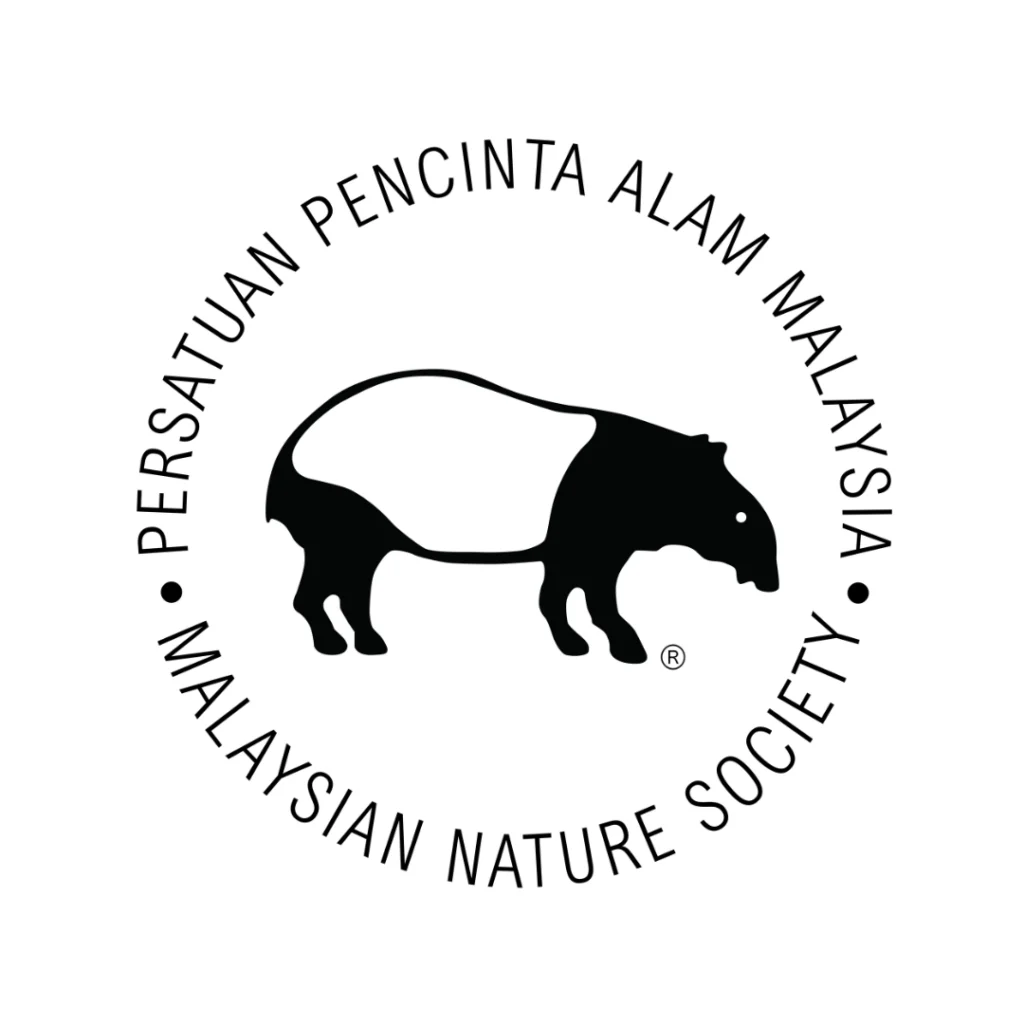
DONATE TO MNS Verified for authenticity Learn More IMPACT PROMISE Our Partners are carefully selected due to their high conservation impact Appeal Snapshot Partner: Malaysian Nature Society (MNS) Location: Kuala Lumpur, Malaysia Category: Ecosystem Restoration Education Scientific Research Wildlife Conservation Urgent Appeals: Protect Green Spaces and Urban Wildlife Date Founded: 1940 Website: mns.my Partner Qualifications: IUCN MemberA distinguished Member of the International Union for the Conservation of Nature. IUCN Members are each vetted and voted on based on an independent, rigorous assessment and external references. Learn More Legally ConstitutedThis organization is formally constituted and is a legally recognized non-profit in its country of origin. Effective ImpactWe recognize this Partner for their tremendous efforts to make a difference for wildlife and local communities, as well as welcome technical support from Conservation Allies to improve and scale up their impact. Malaysian Nature Society The Malaysian Nature Society (MNS) works to protect Malaysia’s biodiversity through conservation projects, habitat restoration, and wildlife monitoring. It manages nature parks, organizes tree-planting initiatives, and advocates for the protection of endangered species and critical ecosystems. MNS also engages communities through environmental education programs, publishes the Malayan Nature Journal, and collaborates with government agencies and local groups to promote sustainable practices and safeguard the country’s natural heritage. Their Challenges Malaysia’s natural environment faces significant challenges, including widespread deforestation, habitat fragmentation, and encroachment from human activities. These pressures are intensified by climate change, weak environmental governance, and uncoordinated national planning. Remaining forested areas, often located in interior regions, are under constant threat from plantations, mining, infrastructure projects, and hydroelectric developments, leading to carbon emissions, biodiversity loss, and human-wildlife conflict. Indigenous and local communities living in these regions face marginalization and economic struggles, with their voices often excluded from decisions about land development. State governments, seeking additional revenue, frequently prioritize low-cost economic activities like logging and plantation expansion, putting biodiversity-rich forests at risk. Development priorities are further driven by state and district planning documents, which are updated infrequently and often allocate new areas for exploitation. At the federal level, Malaysia faces the complex task of balancing economic development with its commitments to global environmental agreements, such as the Convention on Biological Diversity. While initiatives exist to address these issues, they are often fragmented, lacking the coordination and comprehensive approach needed to ensure sustainable outcomes. Their Approach The Malaysian Nature Society focuses on conserving Malaysia’s biodiversity and restoring ecosystems to ensure long-term environmental health and sustainability. It promotes public awareness through the operation of nature parks like the Kuala Selangor Nature Park and the Kertih ecoCare Environmental Education Centre. These parks serve as hubs for environmental education, offering programs for students of all ages and opportunities for tree-planting activities as part of corporate and community initiatives. Visitors gain a deeper understanding of the interconnectedness of ecosystems and the importance of conservation. MNS undertakes species-focused and landscape-level conservation projects, advocates for improved environmental governance, and publishes the Malayan Nature Journal. These efforts involve extensive fieldwork, research, community engagement, and collaborations with key stakeholders to drive impactful outcomes. To address climate change, MNS prioritizes reforestation, partnering with government agencies, local communities, and Indigenous Peoples to plant thousands of trees across degraded landscapes. These efforts restore critical habitats, mitigate climate impacts, and provide sustainable livelihood opportunities for local and Indigenous communities. Why They Need Your Help MNS relies on donations to sustain its critical conservation work across Malaysia, including monitoring and protecting sensitive habitats in Sabah, Sarawak, and Peninsular Malaysia. Funds support field research, policy advocacy, community collaborations, and digital outreach through platforms like the Malayan Nature Journal and the Rantaian Urban Green Spaces project. Contributions also help train staff, develop eco-tourism initiatives like Merapoh Cave exploration, and maintain long-term conservation efforts to safeguard Malaysia’s precious ecosystems. Your support enables MNS to continue championing nature conservation and protecting vital habitats from escalating threats.
Mindoro Biodiversity Conservation Foundation Inc.
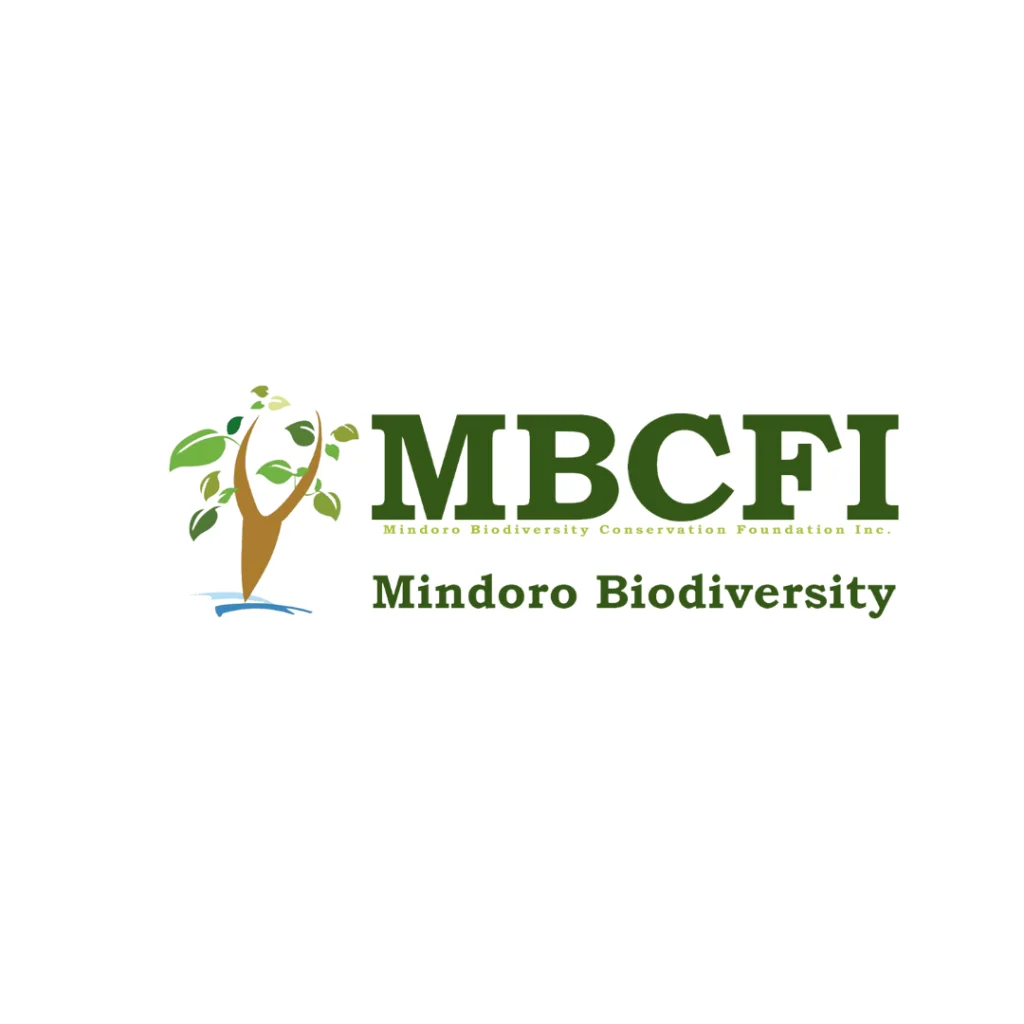
DONATE TO MBCFI Verified for authenticity Learn More IMPACT PROMISE Our Partners are carefully selected due to their high conservation impact Appeal Snapshot Partner: Mindoro Biodiversity Conservation Foundation Inc. (MBCFI) Location: Mindoro Island, Philippines Category: Ecotourism Education Scientific Research Urgent Appeals: None currently Date Founded: 2008 Website: mbcfi.org.ph Partner Qualifications: IUCN MemberA distinguished Member of the International Union for the Conservation of Nature. IUCN Members are each vetted and voted on based on an independent, rigorous assessment and external references. Learn More Legally ConstitutedThis organization is formally constituted and is a legally recognized non-profit in its country of origin. Effective ImpactWe recognize this Partner for their tremendous efforts to make a difference for wildlife and local communities, as well as welcome technical support from Conservation Allies to improve and scale up their impact. About Mindoro Biodiversity Conservation Foundation Inc. The Mindoro Biodiversity Conservation Foundation Inc. (MBCFI) is a non-profit organization founded in 2008 and dedicated to conserving Mindoro Island’s unique and endangered biodiversity. Mindoro is recognized globally as a priority area due to its rich variety of endemic species and diverse habitats. MBCFI leads conservation initiatives through research, community engagement, and educational programs that promote environmental awareness and sustainable practices. Their Vision: Sustained conservation of Mindoro’s natural treasures for future generations. Their Mission: To lead scientific research and foster collaborative conservation efforts in key biodiversity areas of Mindoro, empowering local communities through awareness and care. Their Objectives: Preserve Mindoro’s native and endemic species. Increase public awareness and support for conservation. Share research and educational resources to build interest and drive community involvement. Strengthen local capacity for habitat protection and sustainable resource use. Integrate indigenous knowledge to enhance conservation and reduce environmental pressures on sensitive areas. Their Challenges Mindoro, a biodiversity hotspot in the Philippines, faces significant conservation challenges. Deforestation and habitat loss, often due to illegal logging and agricultural expansion, endanger many native species. Urban development has led to soil erosion, water pollution, and habitat fragmentation, which isolate wildlife populations and hinder their survival. Invasive species disrupt local ecosystems, threatening indigenous species. Climate change further exacerbates these issues, affecting rainfall, temperature, and sea levels, which particularly impacts coral reefs and marine life. Additionally, conservation efforts are complicated by limited law enforcement, overlapping protected and ancestral lands, and development projects prioritized over conservation. Their Approach The Mindoro Biodiversity Conservation Foundation Inc. (MBCFI) employs a comprehensive approach to biodiversity conservation, emphasizing scientific research, education, and partnerships with key stakeholders, including Indigenous communities. Research helps MBCFI understand ecosystem dynamics, identify vulnerable species, and develop targeted, evidence-based strategies. Education initiatives raise awareness among local communities, policymakers, and the public about biodiversity’s importance and the threats it faces, promoting sustainable practices and community involvement. Collaboration with government agencies, NGOs, local communities, and the private sector is central to MBCFI’s strategy. These partnerships facilitate resource sharing, align conservation goals with local needs, and incorporate diverse perspectives into conservation efforts. By engaging local communities, MBCFI leverages traditional ecological knowledge and fosters a sense of ownership, enhancing the sustainability of conservation initiatives. This integrated approach strengthens biodiversity conservation in Mindoro, protecting ecosystems, preserving natural heritage, and supporting a sustainable future. Why They Need Your Help MBCFI relies on grants and donations to fund its biodiversity conservation programs in Mindoro. Additional support is essential for advancing initiatives that protect the island’s unique species and ecosystems. Donations help implement MBCFI’s core programs in research, education, and community empowerment, directly engaging locals in conservation activities that impact their environment and livelihoods. Contributions also enhance educational outreach, supporting awareness-building initiatives and resources. Additionally, funding helps MBCFI develop innovative conservation strategies, like sustainable ecotourism at the Mindoro Biodiversity Conservation Center, which promotes biodiversity awareness and generates income, fostering a balance between economic development and environmental stewardship.
Cape Leopard Trust
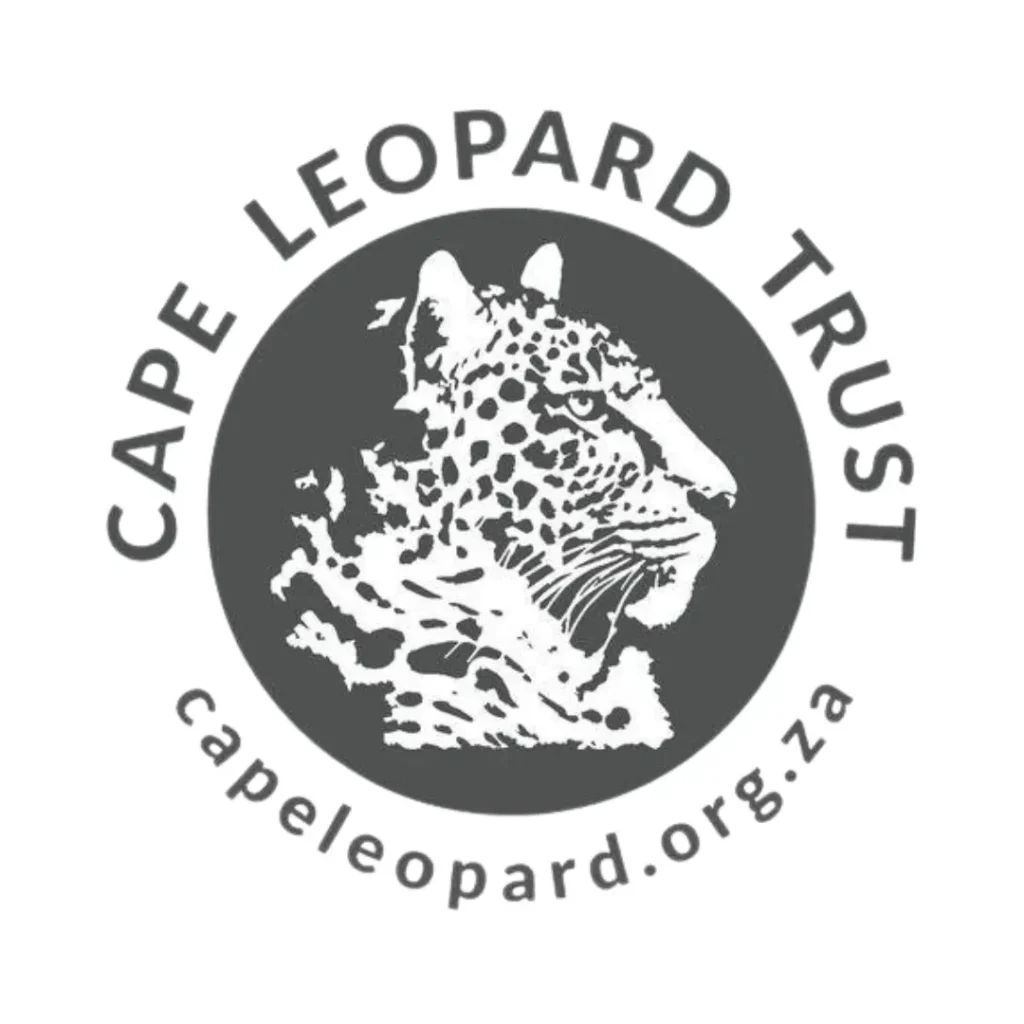
DONATE TO CLT Verified for authenticity Learn More IMPACT PROMISE Our Partners are carefully selected due to their high conservation impact Partner Snapshot Partner: The Cape Leopard Trust Location: South Africa Category: Education Scientific Research Wildlife Conservation Urgent Appeals: None currently Date Founded: 2004 Website: capeleopard.org.za Partner Qualifications: Verified PartnerOne of Conservation Allies’ staff or trusted advisors has visited this organization and verified its work and impact. Legally ConstitutedThis organization is formally constituted and is a legally recognized non-profit in its country of origin. Effective ImpactWe recognize this Partner for their tremendous efforts to make a difference for wildlife and local communities, as well as welcome technical support from Conservation Allies to improve and scale up their impact. About The Cape Leopard Trust The Cape Leopard Trust (CLT) is an environmental NGO and non-profit, based in the Western Cape of South Africa. They facilitate and promote the conservation of biological diversity, with a focus on the leopard as a flagship species. Their purpose and vision is to ensure the continued survival of leopards for the benefit of nature and society, by supporting the protection of leopard habitat and prey species, promoting peaceful coexistence between leopards and people, and fostering community custodianship of the Cape’s unique biodiversity. The CLT works to achieve this vision through rigorous scientific research, conservation-in-action initiatives, environmental education and outreach, and positive communication, in collaboration with communities, private landowners, and partner organizations. Their Challenges The Western Cape, South Africa, is home to globally relevant fauna and flora, and the Cape Floral Region is a Global Biodiversity Hotspot. The leopard is a member of the Big 5 and the last large predator to still roam free in the Western Cape. The species faces multiple threats, including limited and fragmented habitat, reduction in prey numbers, and high levels of conflict with people. Leopards in the Western Cape occur at low densities and utilize home ranges up to ten times larger than leopards in other parts of South Africa. Protecting connectivity across the landscape is essential for the leopard’s long-term survival and to ensure they can continue to provide vital ecosystem services. Poaching in the form of illegal snaring is an exceedingly complex challenge. Snares are indiscriminate and take a huge toll on the entire ecosystem, also impacting predators like leopards. The threat of snaring to leopards is two-fold: firstly, it reduces the numbers of their prey species like small antelope and porcupine, and secondly leopards themselves can get caught. Human-predator conflict is another age-old and still ongoing challenge, as leopards continue to be persecuted in retaliation for both real and perceived livestock losses. Engaging youth in protecting biodiversity is often overlooked, yet this is crucial as it fosters a lifelong commitment to environmental stewardship, instills a sense of responsibility, and ensures the continuity of conservation efforts for future generations. In rural settings, teachers often face unique obstacles such as isolation, resource constraints, and multi-grade teaching. Their Approach The CLT’s work and reputation is built on a well-established foundation of robust science and strong relationships. The CLT values an inclusive approach to research, conservation and education. They believe that strong stakeholder communication and incorporation is essential to devise successful conservation strategies. In addition, they try to ensure that all people can access nature-based learning and have created a suite of inclusive environmental education tools to facilitate this. Their research seeks to understand leopard ecology and people’s relationships with leopards, and they employ a variety of methods including camera trap surveys, dietary analyses, habitat suitability and connectivity modeling, citizen science, and social science. The CLT takes a holistic approach to conservation and provides support for livestock farmers with leopard conflict, snare patrols, knowledge-sharing workshops, resources, collaborative initiatives, and community-based outreach. Finally, they aim to inspire the next generation with quality environmental education including wilderness camps, eco-clubs, day outings, holiday programs, art competitions, presentations, online learning, and a children’s literacy project. Why They Need Your Help The Cape Leopard Trust seeks support to monitor leopard population trends through repeat large-scale camera surveys of core leopard habitat. The operational running costs of these surveys are immense. Furthermore, they need help to rapidly mitigate emerging threats to leopards. The increasing prevalence of snaring in the province has prompted the development of our collaborative Snare Free project, which requires urgent support to combat this threat. Additionally, funds are required to identify, investigate and conserve ecological corridors in partnership with private landowners and other stakeholders. Conservation Allies charges no overhead fees or administration costs meaning 100% of your donation goes directly to The Cape Leopard Trust. All donations made from the United States are fully tax-deductible.
Tesoro Escondido Reserve Foundation
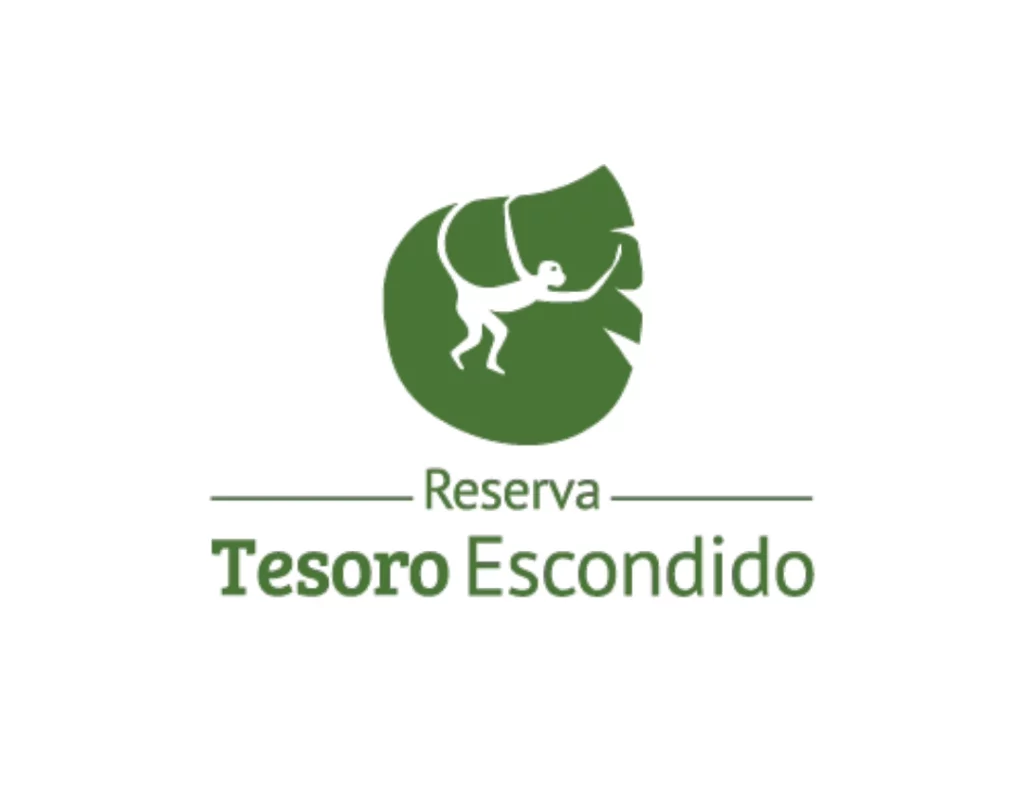
DONATE TO TESORO ESCONDIDO Verified for authenticity Learn More IMPACT PROMISE Our Partners are carefully selected due to their high conservation impact Appeal Snapshot Partner: Tesoro Escondido Reserve Foundation Location: Ecuador, Latin America Category: Community Support and Development Scientific Research Wildlife Conservation Urgent Appeals: None currently Date Founded: 2016 Website: www.tesororeserve.org Partner Qualifications: Legally ConstitutedThis organization is formally constituted and is a legally recognized non-profit in its country of origin. About Tesoro Escondido Reserve Foundation The Tesoro Escondido Reserve Foundation works to conserve the highly threatened lowland Ecuadorian Chocó forest through participatory scientific research, environmental education, and sustainable community projects. It protects a 5,000 acre nature reserve that many endangered and endemic species depend upon for their survival, including the Ecuadorian brown-headed spider monkey. Their Challenges The Chocó lowland forest is threatened by several anthropogenic activities, mainly timber extraction and agriculture. Flora and fauna in this forest are still understudied and many species haven’t been described yet. Furthermore, local communities are not aware of the highly biodiverse area they live in, making its conservation a challenge. Mining in the near future may become a major additional threat, as it is expanding throughout the country. Their Approach The Tesoro Escondido Reserve Foundation coordinates participatory scientific research, carrying out biodiversity surveys in the reserve at their scientific station. They also work with around 500 children in local communities around the reserve through their permanent environmental education program. They develop sustainable development community projects, particularly with local women to strengthen local businesses and capacity building. They also manage a coexistence project that reduces human-wildlife conflict with jaguars and other predators. The Foundation supports indigenous Chachi and mixed communities with habitat restoration projects and agroecology development. Why They Need Your Help The Tesoro Escondido Reserve Foundation needs donors’ support to guarantee the continuation of its activities, particularly core costs which allow them to pay staff salaries and fund the operations and improvements of their crucial research station.
You Are Our Hope for Madagascar!
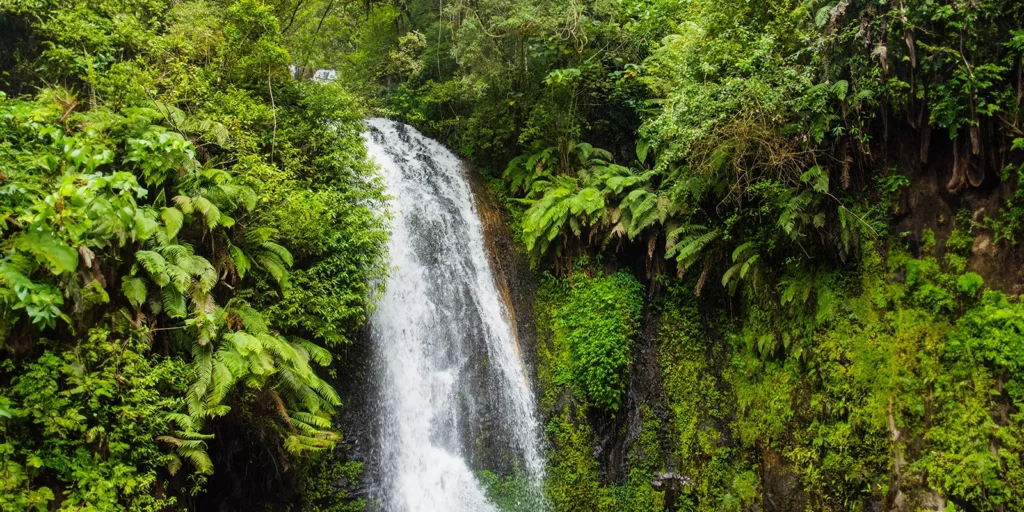
SUPPORT Verified for authenticity Learn More IMPACT PROMISE Our Partners are carefully selected due to their high conservation impact Partner Snapshot Partner Name: Madagasikara Voakajy Location: Bobaomby Complex Protected Area, North Madagascar Appeal Category: Capacity Building and Training Scientific Research Ecosystem Restoration Key Species: Giant baobab tree Crowned lemur Blind Stone Skink Challenges And Threats: Forest fires Deforestation Climate change Actions: Strengthen community capacity to sustainably manage nature Ecological monitoring Restoration of endangered trees The Challenge Bobaomby, the area located between Ambodimadiro going north to Cap d’Ambre, is rich in biodiversity, yet is undergoing a massive forest loss due to land clearing, forest fires, extension of the farmland, and an increase in charcoal production. In 15 years, the loss of forest cover continues to vary, averaging over 700 acres per year. These forests are the habitat of many endangered species which we believe are in major decline. Understanding scientific data such as the ecology of our focal species will allow us to develop appropriate conservation plans. Urgent Solutions In a strenuous effort to preserve the Bobaomby forest, Madagasikara Voakajy is intensifying its protection efforts by already strengthening patrolling efforts with the fund obtained in June 2023. We plan to extend these efforts to strengthen forest protection through local patrols. Investing in scientific research will provide us with data that will help us establish the right management strategy to conserve target species. Why Your Donation Matters The Bobaomby zone is an area with several charcoal permits, but we have identified several charcoal production areas where it is not permitted. Furthermore, Bobaomby has several sacred places with intact forests with high potential for biodiversity wealth. Given that we have obtained authorization from the local leaders to access these places, we would like to continue our conservation actions in these places, secure the necessary funds for biological surveys, and establish sustainable resource management plans. Partner Qualifications IUCN Member A distinguished Member of the International Union for the Conservation of Nature. IUCN Members are each vetted and voted on based on an independent, rigorous assessment and external references. Learn More Verified Partner One of Conservation Allies’ staff or trusted advisors has visited this organization and verified its work and impact. Legally Constituted This organization is formally constituted and is a legally recognized non-profit in its country of origin. Top Accountability Our experienced team has rigorously reviewed the organization’s annual accounts. Learn More Effective Impact We recognize this Partner for their tremendous efforts to make a difference for wildlife and local communities, as well as welcome technical support from Conservation Allies to improve and scale up their impact. Conservation Action Heroes We recognize this Partner for their high level of engagement with the Conservation Allies team and their demonstration of a clear commitment to our collective mission of making a real difference and having a major impact on wildlife and communities where it is needed most.
Silky Sifakas Need Your Help
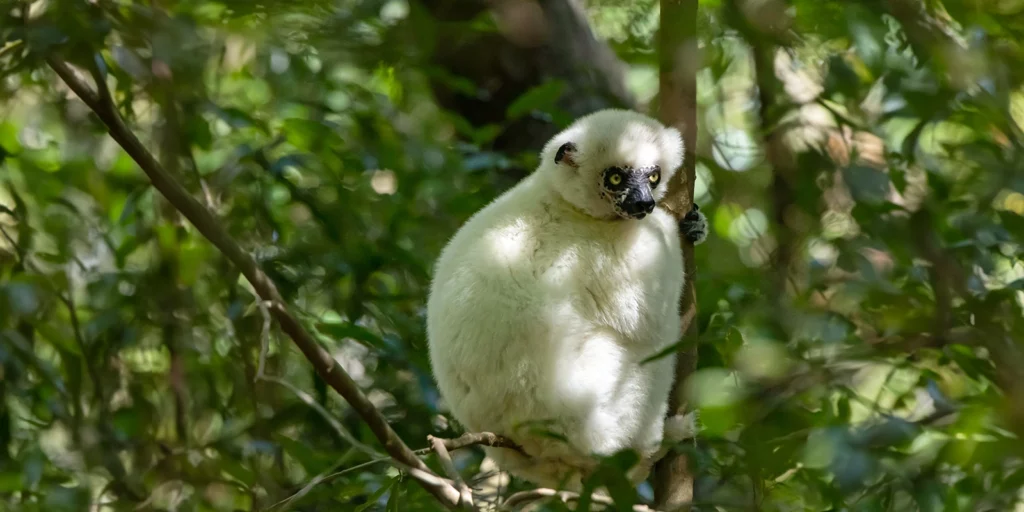
SUPPORT Verified for authenticity Learn More IMPACT PROMISE Our Partners are carefully selected due to their high conservation impact Partner Snapshot Partner Name: Lemur Conservation Foundation Location: Marojejy National Park, Madagascar Appeal Category: Endangered Species Wildlife Conservation Scientific Research Key Species: Silky sifaka Indri Red ruffed lemur Challenges And Threats: Bushmeat hunting Slash-and-burn agriculture Selective logging Actions: Arboreal camera trapping for lemurs Silky sifaka long-term monitoring The Challenge Critically endangered silky sifakas are among the rarest primates in the world with less than 2000 remaining individuals and none in zoos. They are only found in a small area of northeastern Madagascar at elevations above 600m. For many years this species was listed as one of the World’s Top 25 rarest primates. Silky sifakas are the flagship species for Marojejy National Park, a World Heritage Site. Due to their rarity and the steep mountainous terrain, obtaining valid population densities is challenging. It is critical for the survival of this species that more is learned about where exactly they are found, their abundance, and the local threats that vary with site. Urgent Appeal Funds are needed for two silky sifaka conservation research projects: Arboreal camera trapping and Long-term monitoring. From December 1, 2023 to June 1, 2024, we plan to conduct a lemur survey in southwestern Anjanaharibe-Sud (near Camp Indri) using motion-activated camera traps placed high in the trees and on the ground. Particularly for very rare species, such as critically endangered silky sifakas, or cryptic species like aye aye, traditional survey methods such as line-transect surveying, require large amounts of time and resources and do not always produce clear results. Arboreal camera trapping is a new methodology increasingly used for lemurs in Madagascar. Our long-term monitoring program focuses on four groups of silky sifakas that we would like to visit each year (Camp Marojejia in Marojejy National Park, Camp Indri in Anjanaharibe-Sud Special Reserve, and Maherivaratra, a disturbed unprotected forest). Additionally, we hope to start visiting the groups near Simpona Lodge in Makira National Park, an unusual low-elevation site. We have habituated several of these groups and have established individual recognition. It is critical to regularly follow these groups (at least once per year for several weeks) to learn more about their demography and document critical life-history parameters such as number of infants born each year, birthdates, changes in group membership as well as obtaining ranging and feeding data. Moreover, our team plays a vital role in protecting these groups by destroying bushmeat traps, identifying new disturbances in their habitat, and organizing patrols if needed. Our presence deters poaching. Why Your Donation Matters With 22 lemur species, including 6 critically endangered species, northeastern Madagascar has long been a primate conservation and biodiversity hotspot. Lemur Conservation Foundation is one of the primary sponsors of Marojejy National Park and Anjanaharibe-Sud Special Reserve, which are among the largest and least disturbed rainforest landscapes in Madagascar. Silky sifakas are actually a nationally recognized lemur with their own national stamp and several international films. Before COVID, thousands of tourists visited this region specifically to see silky sifakas which are one of the largest lemurs, absolutely gorgeous fluffy white acrobats that inhabit steep magnificent mountain cliffs, truly breathtaking. Local communities recognize that silky sifakas bring researchers, tourists, and resources. Moreover, this species is very unique with a high elevation preference and they depigment (turning pink) more rapidly with age than any other primate species. Partner Qualifications IUCN Member A distinguished Member of the International Union for the Conservation of Nature. IUCN Members are each vetted and voted on based on an independent, rigorous assessment and external references. Learn More Verified Partner One of Conservation Allies’ staff or trusted advisors has visited this organization and verified its work and impact. Legally Constituted This organization is formally constituted and is a legally recognized non-profit in its country of origin. Top Accountability Our experienced team has rigorously reviewed the organization’s annual accounts. Learn More Effective Impact We recognize this Partner for their tremendous efforts to make a difference for wildlife and local communities, as well as welcome technical support from Conservation Allies to improve and scale up their impact. Conservation Action Heroes We recognize this Partner for their high level of engagement with the Conservation Allies team and their demonstration of a clear commitment to our collective mission of making a real difference and having a major impact on wildlife and communities where it is needed most.
Forest Management Through Monitoring Primates
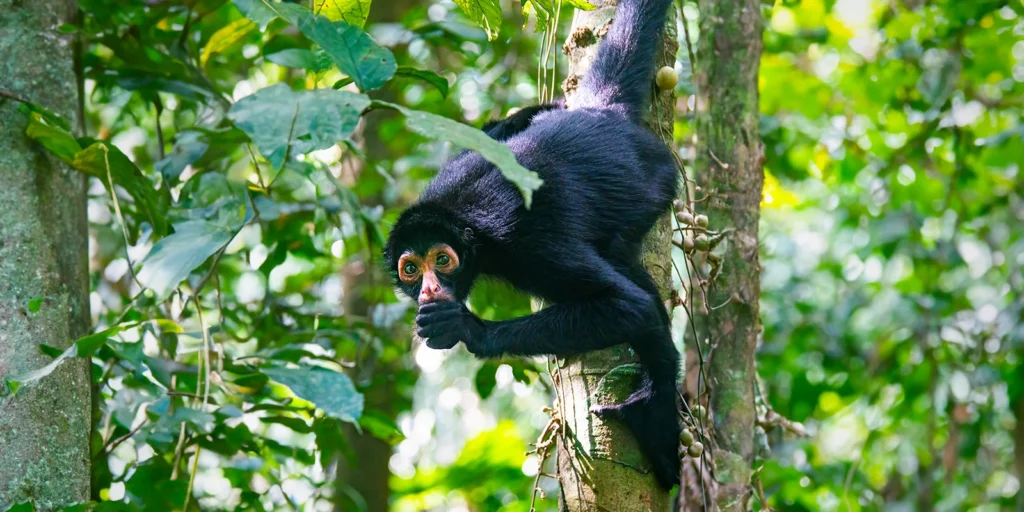
SUPPORT Verified for authenticity Learn More IMPACT PROMISE Our Partners are carefully selected due to their high conservation impact Partner Snapshot Partner Name: Kawsay Biological Station Location: Madre de Dios, Peru Appeal Category: Capacity Building and Training Scientific Research Wildlife Conservation Key Species: Black face Peruvian spider monkey Iron wood Harpy eagle Challenges And Threats: Selective logging Lack of capacity building for local students Lack of field equipment Actions: Training students Securing equipment Installing satellite internet connection The Challenge Since 2018, Kawsay Biological Station has managed the conservation of a forest almost 500 acres in size, next to the Tambopata National Reserve. Before 2018, this area was heavily impacted by selective logging, mining, and hunting. Since their presence in the area, these activities have remained controlled. A group of reintroduced spider monkeys is also found in this forest and Kawsay members are focused on ensuring their viability. A large focus of Kawsay’s work is managing the forest through the protection of spider monkeys and involving local students in research and conservation action. Urgent Appeal The illegal activities continue to occur around the Kawsay concession, and the risk and threat are present. It is important that Kawsay staff, interns, and volunteers maintain a constant presence within the forest, while they carry out patrol activities, study wildlife, and above all, monitor the monkeys. In doing so, the forest is monitored and illegal activities have stopped altogether. Increased access to scientific equipment will help Kawsay members to better understand the ecological requirements of the spider monkey, and will improve the training experiences of local students. Why Your Donation Matters Your donation will support the training of local students so they can have better educational opportunities and contribute to conservation long into the future. It will also help to ensure the viability of a reintroduced group of spider monkeys who are important seed dispersers and help the natural regeneration of the forest. The return of this species to an area where they were once considered extinct will help to restore the composition and function of this forest. Partner Qualifications IUCN Member A distinguished Member of the International Union for the Conservation of Nature. IUCN Members are each vetted and voted on based on an independent, rigorous assessment and external references. Learn More Verified Partner One of Conservation Allies’ staff or trusted advisors has visited this organization and verified its work and impact. Legally Constituted This organization is formally constituted and is a legally recognized non-profit in its country of origin. Top Accountability Our experienced team has rigorously reviewed the organization’s annual accounts. Learn More Effective Impact We recognize this Partner for their tremendous efforts to make a difference for wildlife and local communities, as well as welcome technical support from Conservation Allies to improve and scale up their impact. Conservation Action Heroes We recognize this Partner for their high level of engagement with the Conservation Allies team and their demonstration of a clear commitment to our collective mission of making a real difference and having a major impact on wildlife and communities where it is needed most.


